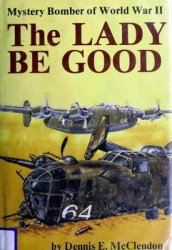Not content with having killed Hector, Achilles strung the Trojan’s body to his chariot and dragged it around the

Hector as Cult Hero
In ancient Greece from about the third to the eighth century BCE, many legendary heroes, such as Hector, Heracles, and Achilles, had cult followings that rivaled the worship of the major Olympians. Generally such heroes were considered semidivine: for example, Hector's father, Priam, was said to have been the grandson of a river god; Heracles was the son of Zeus; and Achilles the son of the sea goddess Thetis. The tradition of worshiping a particular hero is known as a hero cult, and the followers of a particular hero cult would make offerings to their hero. For instance, they would sacrifice animals, such as sheep, or pour a liquid, such as blood, wine, or oil, onto the ground at the site where the hero was believed to have been buried. They would also pray to their hero to help them, and they believed that the hero would occasionally come back to life at the spot where his body was buried.
The cult of Hector was followed mostly in and around Troy, where he was thought to have been buried. There was also a cult dedicated to Hector at the Greek city of Thebes. This was because, according to one version of the legend, Hector's body had been removed from Troy and buried there.
Left: Tears of Andromache, by French artist Jacques-Louis David (1748—1825), depicts the widow and her son grieving beside Hector’s corpse. David chose to paint Hector because his qualities made him a popular hero during the French Revolution.
Doomed, so too is Troy doomed. The way Hector is tricked just before his death, and the humiliating way Achilles treats his body, are soon echoed by the Greeks. They trick the Trojans with the hollow wooden horse, and then burn and destroy the city and humiliate its people. Troy’s weakness, like Hector’s, is its refusal to do anything but keep fighting. Instead of negotiating or striking a deal that might end the war, Troy relies solely on its military power—just as Hector relies on his strength—and is taken advantage of by the cunning superiority of the Greeks.
Intervene on his behalf). He was always honest and honorable, the only lapse being when he took Achilles’ armor from the corpse of Patroclus and wore it himself. He could not understand how others, such as his brother Paris, could be immoral, lazy, or ungentlemanly. In addition to lauding him in epic poems and myths, the ancient Greeks also depicted Hector in their art, and some groups even worshiped him like a god (see box).
Despite all of Hector’s positive qualities, he was nevertheless a tragic figure. By linking Hector so closely to his family and by showing the emotional devastation felt by his wife at the news of his death, Homer demonstrates that the victims of war are not just the soldiers but their families as well.




 World History
World History









